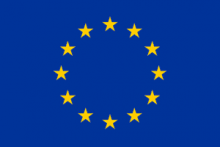5 February 2020
What does a desirable energy future look like for prosumer business models?
First in a series of four international workshops to build a roadmap for mainstreaming prosumerism in the European energy system until 2050
The Horizon 2020 PROSEU project provides insights into the process of mainstreaming renewable energy prosumerism across Europe. To this end, it investigates issues related to finance and business models, policy and governance as well as technology. An important development at EU-level for such mainstreaming is the adoption of the Renewable Energy Directive (also called RED II), which is part of the Clean Energy for all Europeans package. Its aim it is to facilitate the transition away from fossil fuels towards cleaner energy and to deliver on the EU’s Paris Agreement commitments for reducing greenhouse gas emissions. Particularly interesting for PROSEU are two Articles on defining self-consumption as a right and on the protection of renewable energy communities and market disincentives. EU member states are required to implement this Directive by passing new national laws and regulations by June 2021, a process known as “transposition”.
To support policy-makers in this process and to increase the understanding of energy initiatives and businesses of what is at stake, PROSEU will organise a series of international workshops. Through its work on the societal conditions for prosumerism, project partners identified at least three important crossroads in the mainstreaming of prosumerism. With it being an open-ended process, each of these crossroads – political-economical, technological-infrastructural and organisational – gives rise to different forms of prosumerism. This is what is going to be discussed and critically evaluated in these workshops.
The first workshop will discuss the future of business models for prosumerism - actors who both produce and consume renewable energy. Organised by PROSEU project partners Leuphana University Lüneburg, University of Leeds and the Dutch Research Institute for Transitions (DRIFT - Erasmus University), it was initiatlly to take place in-person on 24-25 March 2020 in Lüneburg, Germany. However, due to the current situation it was successfully transformed into an on-line e-workshop.
As subsidy regimes for prosumers are in decline across Europe, prosumers are looking to new business models for the economic viability of projects. The PROSEU project identified two dominant trends in this regard: Prosumers seeking to trade energy at a local level, versus smart, large-scale and networked distributed energy assets. While the first trend sees local and community actors in the driver's seat, the second trend suggests an increased role for technology firms, aggregators and energy suppliers. The aim of this first workshop is to build a roadmap for 2030 on overcoming crucial tensions for prosumer business models. In addition, we anticipate on how to accordingly link actions to the implementation process of the Renewable Energy Directive legislation, which is taking shape across Europe in 2020.
Questions that will be discussed include: What does a desirable energy future look like for prosumer business models? Which conditions need to change in order to get there? How can prosumer business models be integrated into European energy systems? You can find a short background document here.
All the materials from this workshop have now been posted here.
The second workshop on "Designing inclusive energy futures" took place on-line on 29 April 2020. The materials from the event can be found here.
The third e-workshop will discuss "Future energy systems: Prosumer islands or a new IoT community?" and take place on 24 June 2020.
The fourth e-workshop, synthesising the results and roadmaps developed during the previous meetings, will take place at the end of October 2020.
Image copyright: Central building of the Leuphana University Lüneburg (Wikimedia) by "Gerrit Gutzeit"













